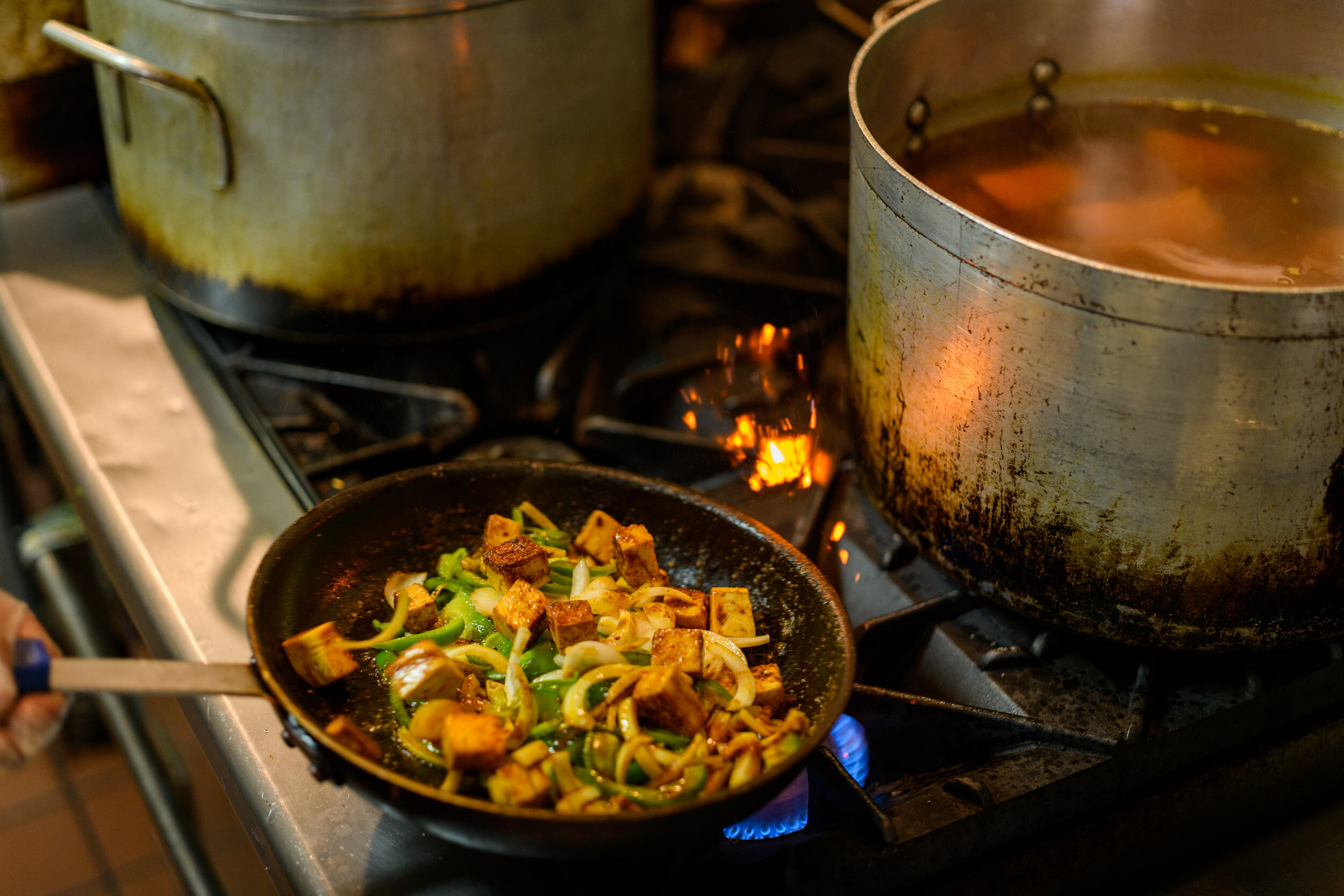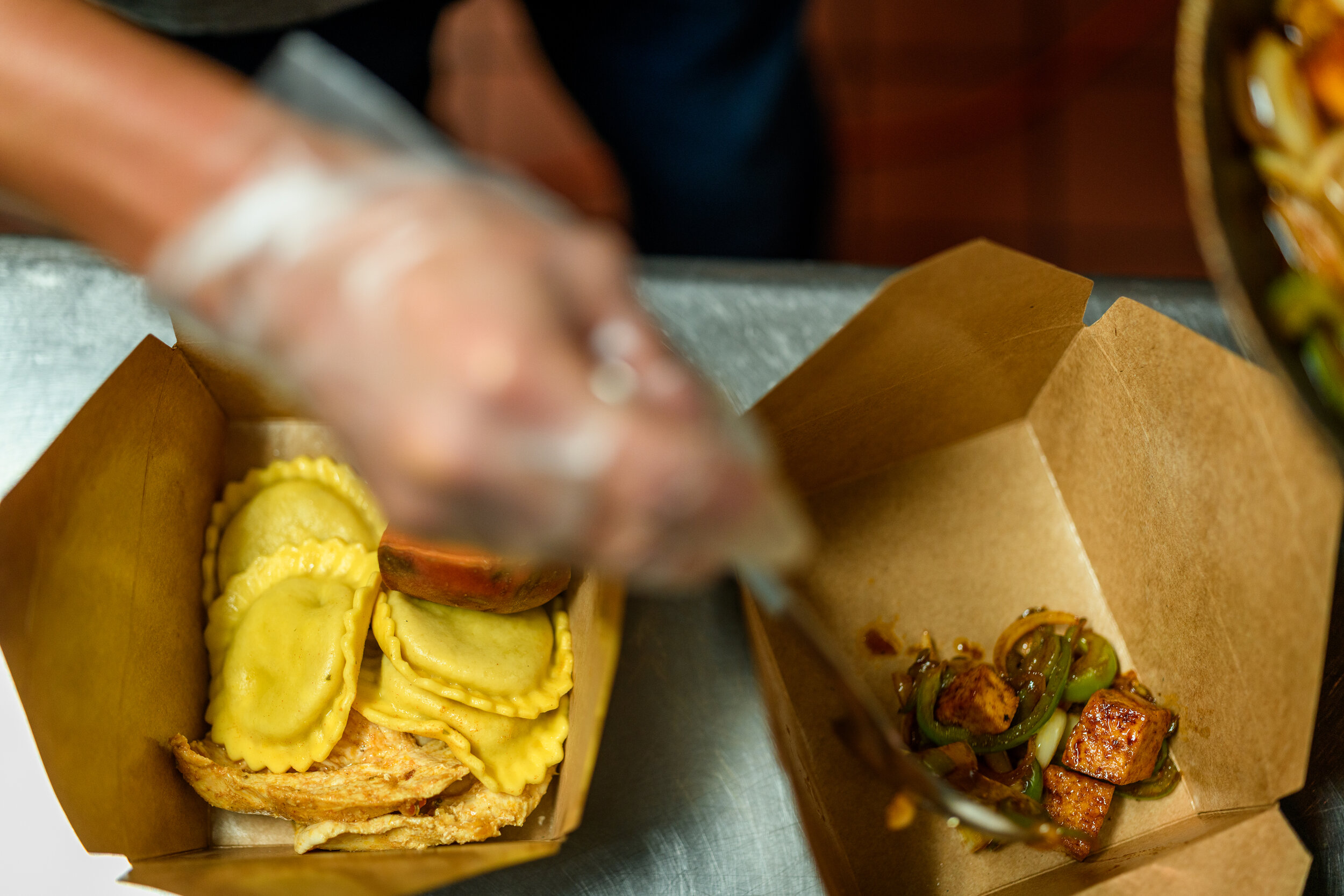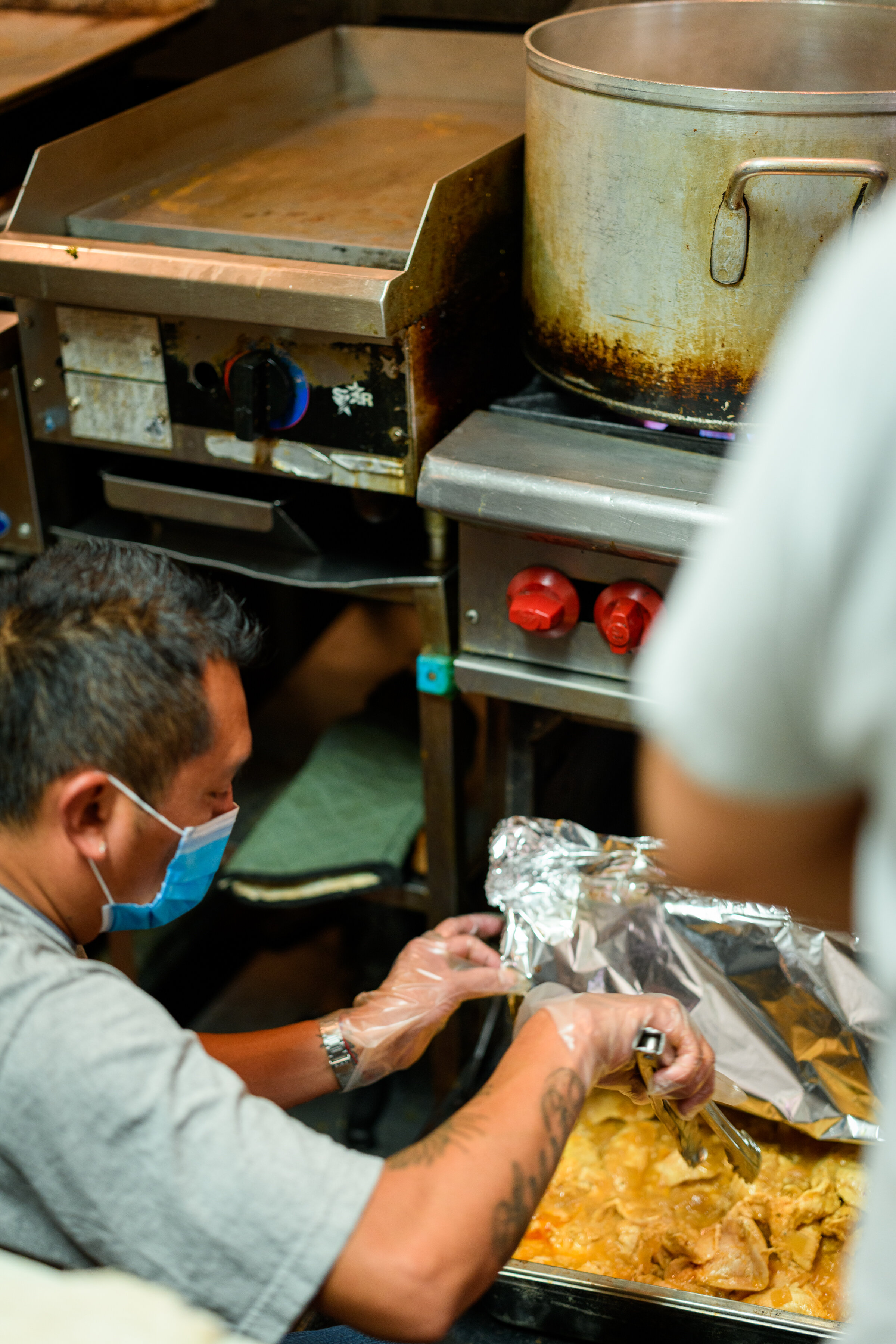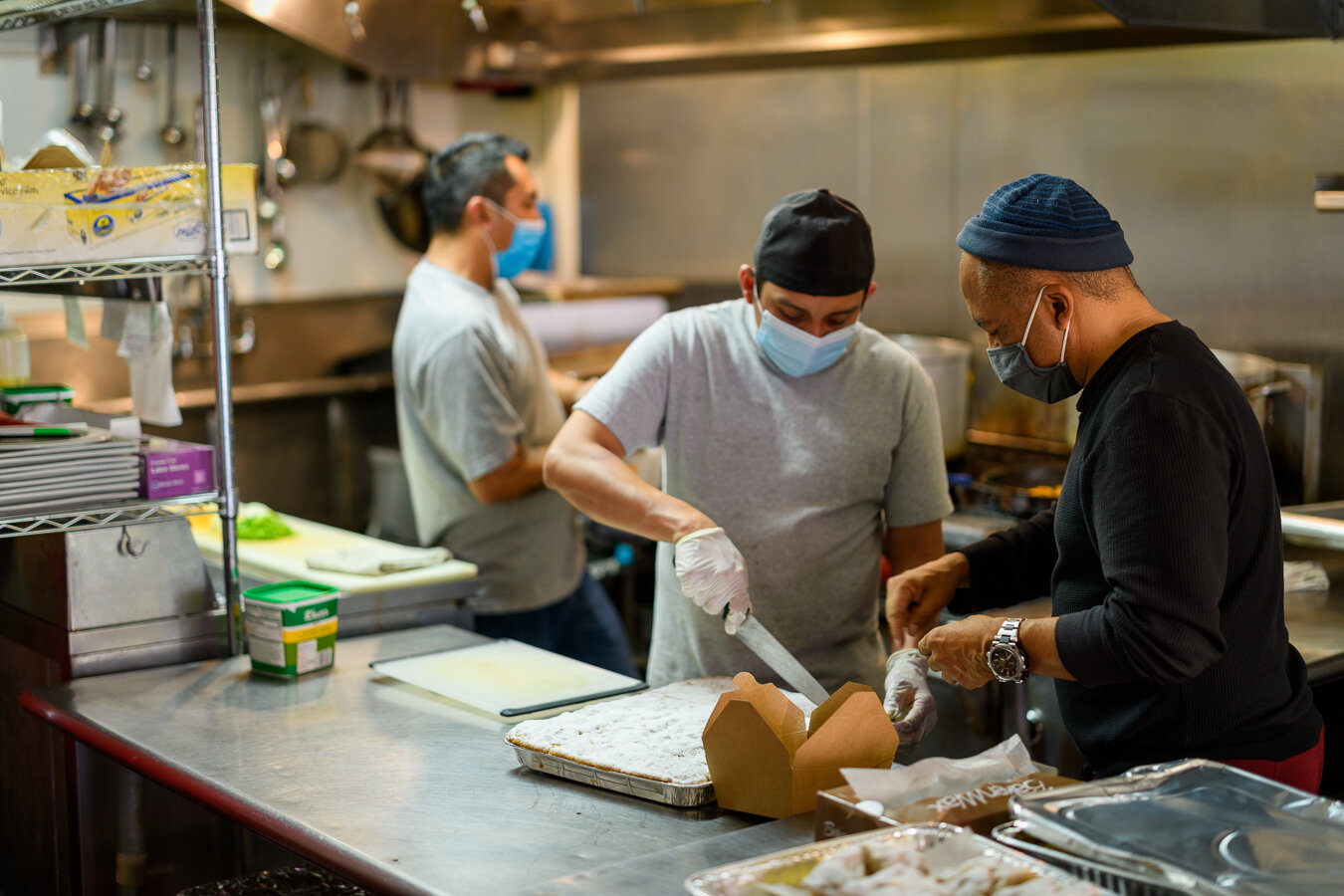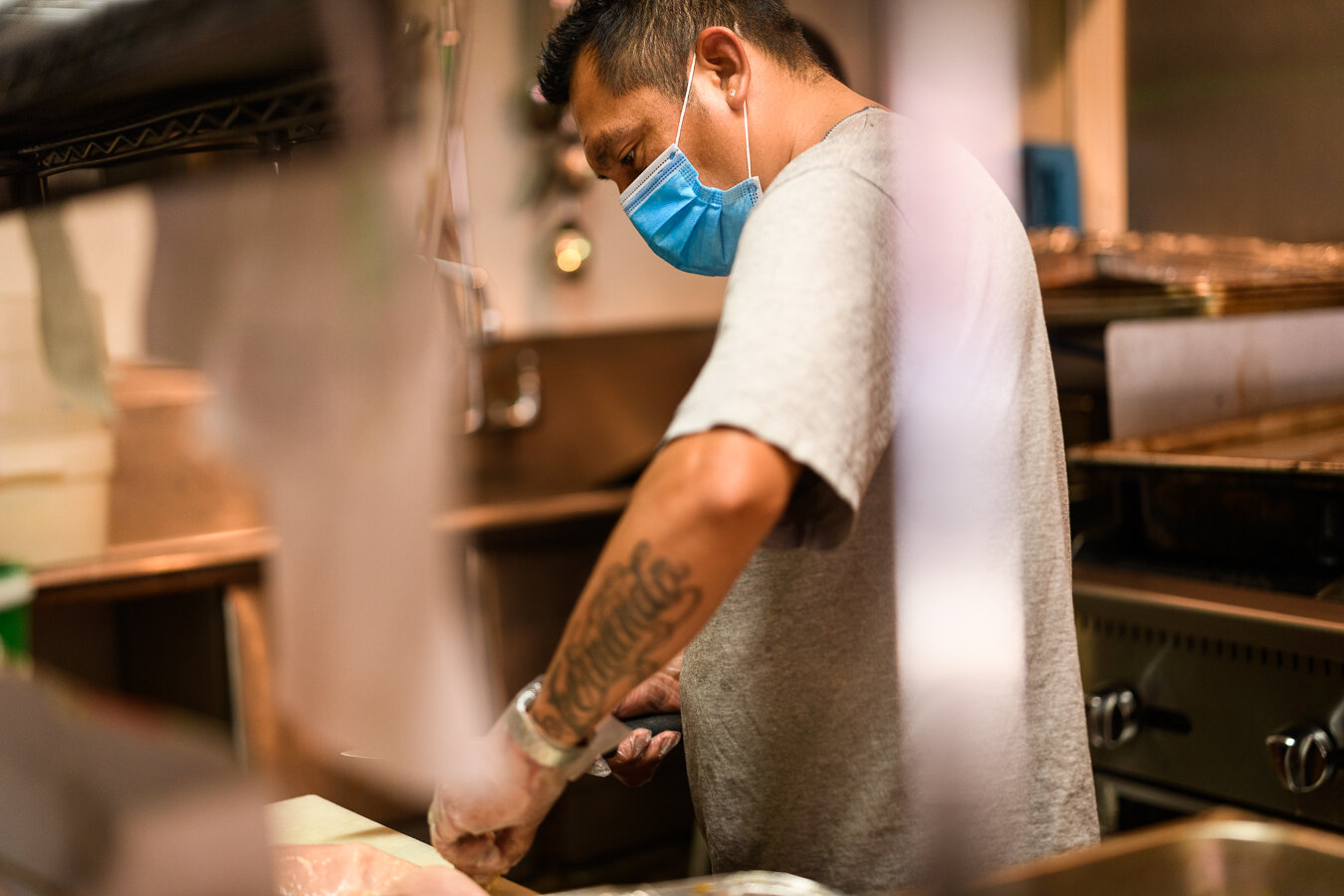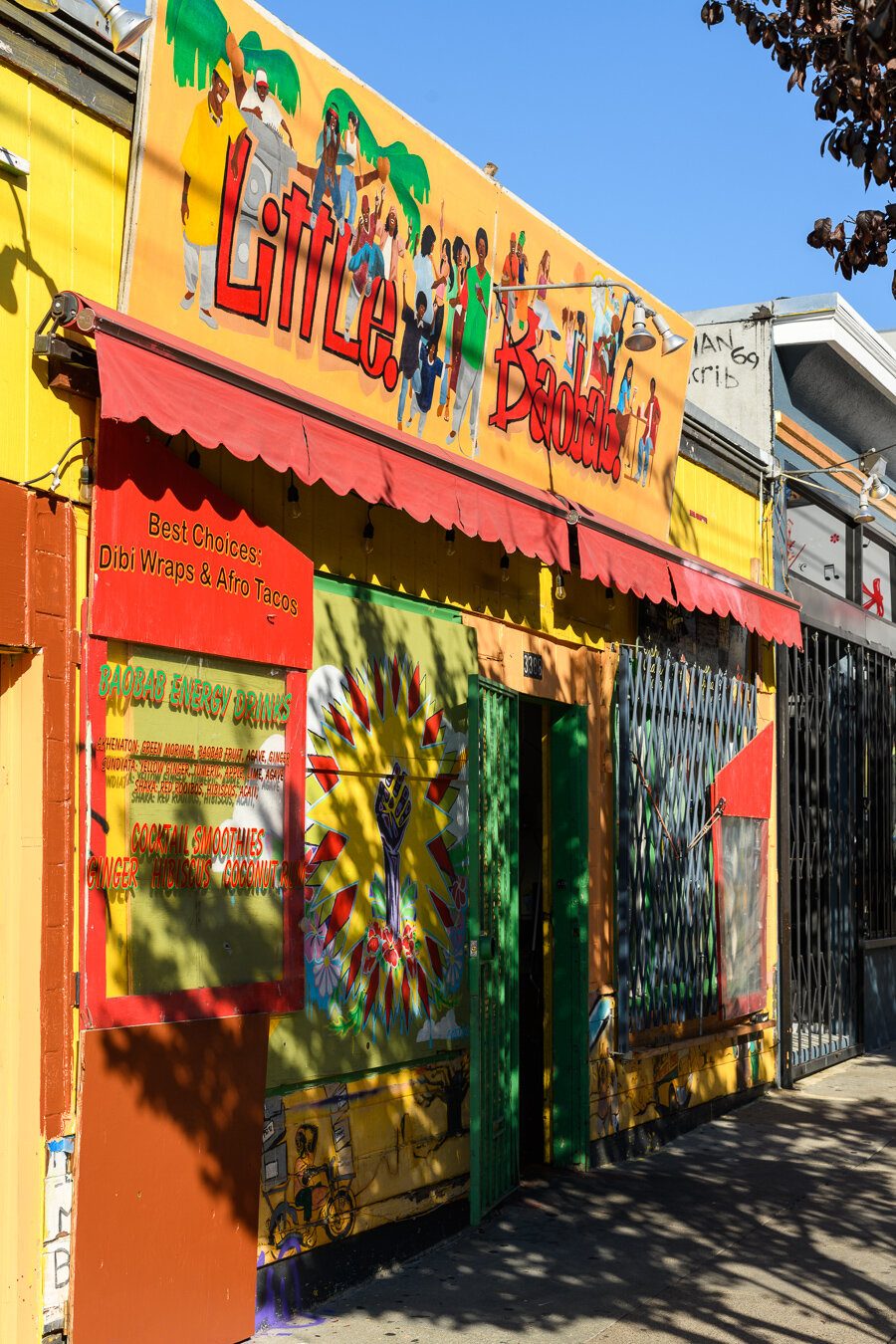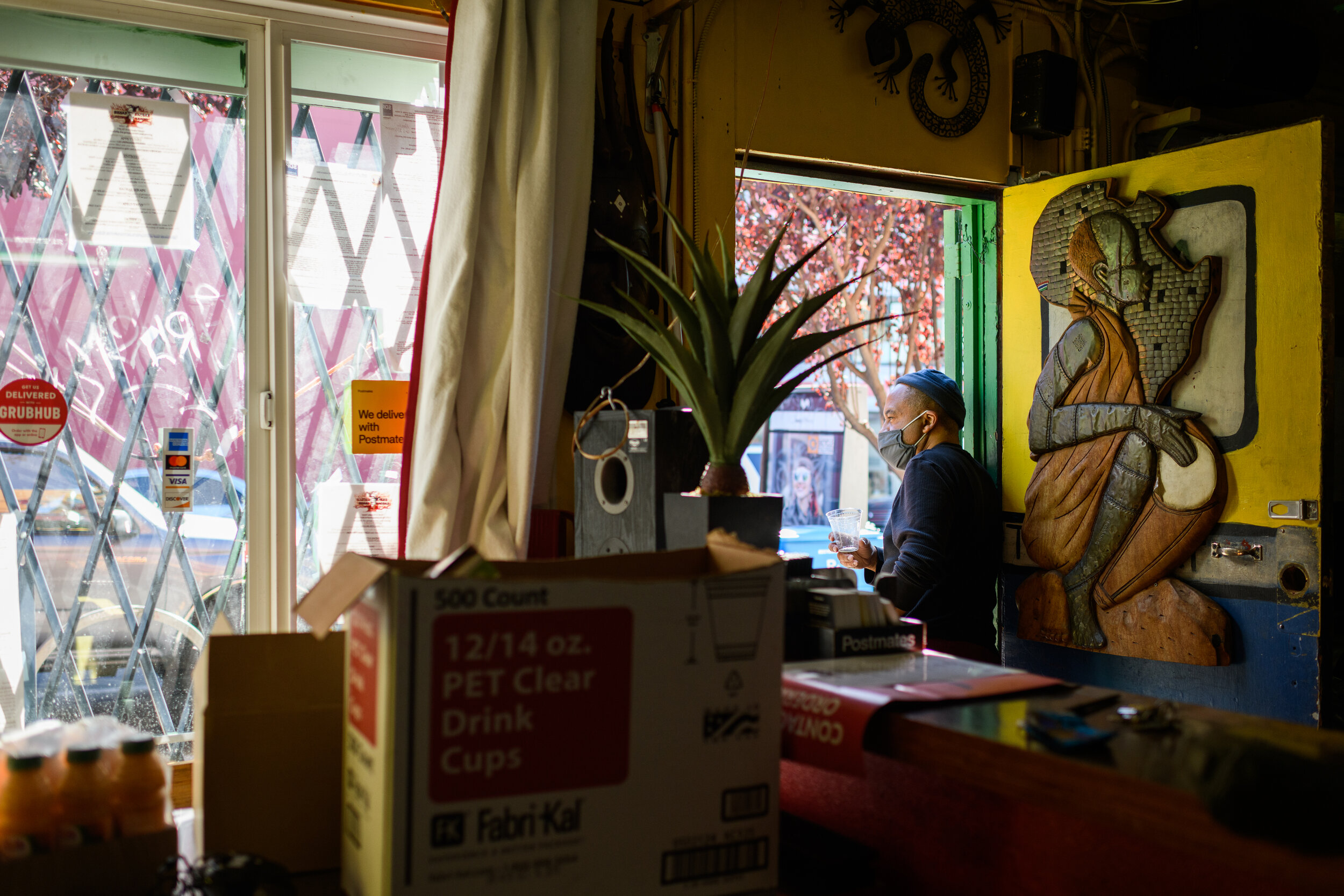Marco Senghor and Little Baobab
By Maddie Scher
Photos by Ian Tuttle
When Marco Senghor first immigrated to California from Senegal he found work as a waiter while pursuing his education. Drawn to the energy of the restaurant space, he never left. As Senghor explains, Little Baobab is much more than a restaurant, “wherever you may come from, you will feel at home at Baobab.” For decades the Mission District institution remained as the identity of the neighborhood shifted around it. Below we discuss with Senghor the flavors and history that make Little Baobab, Senghor’s personal sacrifices that almost cost him his business, and his perspective on the impact of COVID-19 on the restaurant industry.
Our interview has been lightly edited for brevity and clarity.
What is the story behind Little Baobab?
Little Baobab started in 1999 under Ker Baobab (Baobab ‘home) a very traditional Senegalese place run by two female chefs: Bigue Gueye, my niece, and Coura Ndiaye, the best West African Dance teacher in the Bay. It was very hard to keep up with the tough neighborhood where gangs used to meet and fight and die in front of the door. I had to wash the blood [from the violence] many times and clean the place. I used to hide prostitutes from Capp Street. It was just a rough place to live, work, and survive for a young immigrant. Though these street customers were really very supportive in some way. It used to be a little refugee house for some of them. I used to make a lot of cash, they were all proud of me working and trusting the Mission reality. Eventually, a few years later, it closed down, and reopened with good German friends who used to live in Senegal. The Simmersbach brothers, – they were Bohemians, Afrobavarians that I had met many years before in Senegal – joined me along with their good friend, a contractor, Lloyd. We completely reshaped the place and the Baobab took off with a new dimension. It became the place to go visit in San Francisco where all international people enjoyed gathering. Baobab was able to create a safe destination for many people, as well as a hub for San Francisco as other places emerged in the Mission area.
How would you describe the foods and flavors of Little Baobab?
Senegalese food is inspired by many influences as Senegal was colonized by the French. They brought the Vietnamese taste as well because Saigon was under French protectorate. We have the Arabian influence from the north with their famous couscous. Also, the eastern part of Senegal with the Malian Empire and the peanut sauce, and the south very humid and rainy with palm oil-based food. Senegal is known to be the hub of West Africa and everyone knows our traditional renowned Wolof dish, Ceebu Jen, red rice with fish and vegetables, that populated all over West Africa.
What is the most popular dish on your menu and what is one dish you recommend?
Baobab has some very interesting dishes including Yassa: chicken, meat or tofu marinated with onions, lemon and garlic served with rice or couscous. Mafe: meat stew in peanut sauce served with rice and Ceebu Jen: rice cooked in a tomato sauce with fish and vegetables. Baobab serves them every Friday and Saturday.
How has your experience as an immigrant influenced your experience with opening your business and fighting to stay open?
Well, as an immigrant, it was the natural door for me to get a first job as a waiter when I was a student at the University of California. I eventually got swallowed by the fever of the restaurant energy. Only people who work in a restaurant can understand how good it feels to meet and greet everyone and work crazy hours. Little Baobab was not a restaurant like others, it was totally interconnected with my life. If Little Baobab was going down, I was going back home. It was like a one way shot. You live or you die! I was invested 24 hours a day and I had to overcome so many obstacles along the path. We got a lot of recognition, we have our portrait in the Hotel Vitale to reflect the new modern immigrant. We also received the award of Citizen of Honor of the City of San Francisco for redeveloping the neighborhood. We did extremely well and we were listed all over magazines around the world. The bottom line is that Baobab was providing people another dimension: wherever you may come from, you will feel at home at Baobab. We were very international.
Has COVID-19 affected your business?
May I say that COVID-19 helped my business recover?...Suddenly a huge drama fell on Baobab, and me as well of course, since we had always been so interconnected. I faced immigration charges and had to sell all my assets for my defense. I lost my restaurant and the building to meet the huge related legal fees. Eventually, the judge decided to keep me here and wished me good luck and success resuming my activities. It was impossible to assess all the damage Baobob suffered because of the media reporting that we were closed and because we had lost the wonderful Bissap Baobab where thousands of people were used to gathering and dancing every weekend. We were struggling and already down before COVID-19. We were surviving and thinking about the way to come back to the forefront. When you have nothing left, you cannot lose more than what you have already lost. However, COVID-19 in a sad way brought down everybody, especially restaurants and prices. Baobab disappeared from the media and it seems like we have entered a new era for restaurants.
Tell us about the change to Bissap Oakland and the new collective you have established there:
The idea of the collective is to go beyond the concept of the traditional restaurant. We thought that everyone could have something to offer and a few ladies who lost their jobs or have been affected by COVID joined forces. It is a fabulous experience. I hope many people will gather the same way. I have several friends who own restaurants now, who are experiencing quite a difficult time and are eager to come and help. We are thinking about the way to create a team and share ideas to jointly overcome this sad situation and save about 18 jobs for great chefs and workers.
What inspired you to work with SF New Deal?
Well, SF New Deal is another good example of what should be a great economic system. SF New Deal shows a great way for businesses to be in direct contact with their community. You may not make big money from regular customers but when you think about it, everyone loves his neighbor and everyone wants his community to do well. With no hesitation people are happy to give food as a personal commitment and to see how this support impacts sheltered and homeless people. It is a little bit like recycling bottles. We are always happy to support an old man after a night shift. It is also like having a community security officer versus having an anonymous policeman overseeing our community. I think every restaurant should give food as a kind of donation to their community, even after COVID-19.
Would you continue to cook for neighbors in need after COVID-19?
I would not only continue, but I would like to do even more because these people in need will still be here after COVID. I am thinking about creating a Baobab Day if we can come back, and offer $12 individual boxes that will feed people around the neighborhood and also provide an ongoing fundraiser for SF New Deal. We will also bring new popups from our patrons to raise awareness. I would like to share more ideas to help grow this wonderful SF New Deal initiative.
What would you like San Franciscans to know about you?
Well, at first I was very sad about what was happening to Baobab and I was about to leave. Now with SF New Deal, and seeing people are in greater need than I am, I decided to make up my team and start all over again for the benefit of SF. I am still recovering from the last two year ordeal I went through, and I may come back soon in the public under a new banner in the future. However, what I really wish, from the bottom of my heart, is to bring back Bissap Baobab to San Francisco for my community, which gave me such powerful and heartfelt support.
Order takeout or delivery from Little Baobab at: http://www.bissapbaobab.com/takeout-menu
Support Little Baobab’s relief by donating to: https://www.gofundme.com/f/baobab-relief-fund
Photos above feature Marco, Juan, and Estrella.


